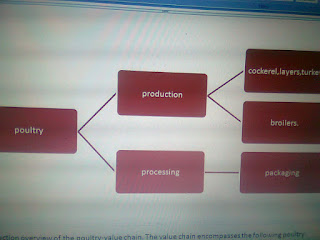The year has been filled with spectacular breakthroughs in science especially in animal health and production,also strange discoveries were uncovered.One of the strange occurrence is the calf born with heart in the neck.

This rare case was reported by the Observer-reporter Washington Co.;Tom Leech had never seen anything like it in his 15 years living at Longview Farms in Amwell Township. There was something unusual about the newborn Shorthorn bull he brought in from the frigid air one Saturday in March.He warmed up the calf with a blow dryer and electric blanket, which warded off hypothermia. But when he touched his neck, he felt a pulsation. Ba-boom, ba-boom, ba-boom.It was his heart.!!!.“No one has ever seen it, never heard of it,” said Leech, who owns the family farm with his wife, Debbie. The calf’s mother, G.I. Jane, has birthed healthy calves in the past, and so has the father. None of the calves born at Longview, a cattle-breeding farm, has had any genetic disorders or abnormalities.But the 6-week-old youngster, dubbed Cardio Brisket, is a “unique calf,” Debbie said.
Dr. Todd Moores of Wheeling Veterinary Associates has seen two-headed calves before, but never one with a heart in its neck.“I could tell by looking at it. You can see the heart beating right there,” Moores said. “It even makes a noise because there’s fluid around it, so it makes a sloshing noise.”He said Brisket appears to have a defect in his thoracic inlet, and he suspects that his sternum never developed properly. Several ribs may be missing, as well. The opening allowed the heart to prolapse into the neck region, and while it can be pushed down, it just “flops out” again, Tom said.
Researchers at the Ohio State College of Veterinary Medicine offered to take Brisket for testing, but they couldn’t guarantee his survival, so the Leeches declined. Besides, they were starting to consider Brisket a valuable member of their farm family.
Brisket stays in the barn, apart from the other 20-some cattle. He is taken out separately during the day to get exercise.“They’re like kids,” Tom said. “They start playing, they start butting, and I’m afraid they’ll butt his chest and could possibly injure his heart.”Moores said it’s hard to tell how long Brisket could live. He has a heart murmur, which could lead to complications when he grows bigger.
The Leeches said they will keep him as long as they can, though. They don’t want to take him to the fair and display him like a “circus attraction,” Debbie said, but they wanted to document the case for future reference. Despite the complications, Brisket appears to be getting by. He just started eating grain and has no problem swallowing the food.“He’s healthy, but all the people I’ve talked to said, ‘You’ve got to put him down,’” Tom said. “If he was suffering, we would probably do something with him, but he’s not.”
There has been 2 other documented cases of such abnormality ;one in Kentucky in 1903, and another in Turkey, but the date was unknown.
 Mehmet Ali Gökçeoğlu decided to build the coolest aquarium for his pet fish in his luxurious villa in Turkey. He went overboard and built the famous aquarium out in the open, in the form of a 50 meter long fence, surrounding his home.
The wacky idea cost the millioniare plenty of thousands of dollars, but pretty soon, he saw his dream come true. The fence was a “fully furnished” aquarium, home to more than 1,000 fish, but also a few octopuses. The 50-meter-long aquarium has become a regular tourist attraction, and thousands of visitors come every day to admire the wondrous fish-fence.
Mehmet Ali Gökçeoğlu decided to build the coolest aquarium for his pet fish in his luxurious villa in Turkey. He went overboard and built the famous aquarium out in the open, in the form of a 50 meter long fence, surrounding his home.
The wacky idea cost the millioniare plenty of thousands of dollars, but pretty soon, he saw his dream come true. The fence was a “fully furnished” aquarium, home to more than 1,000 fish, but also a few octopuses. The 50-meter-long aquarium has become a regular tourist attraction, and thousands of visitors come every day to admire the wondrous fish-fence.
 The hardest part of making the aqua-ence was connecting it to the Aegean sea with the aid of a 400-meter-long underground pipeline. This humongous conduct continuously changes the water, that is why it looks crystal clear and the fishes are extremely happy.
The total amount spent on this cool aquarium fence was $21,000, but still has several costs with security and maintenance. The stunning aqua-fence is kept safe with the aid of more than 17 facial recognition security cameras.
Visitors which line-up to see this cool, man-made structure are allowed to take pictures, or even film the aqua-fence, but if they come too close, they risk setting off an alarm.
Contributed by Coolweirdo.com.
The hardest part of making the aqua-ence was connecting it to the Aegean sea with the aid of a 400-meter-long underground pipeline. This humongous conduct continuously changes the water, that is why it looks crystal clear and the fishes are extremely happy.
The total amount spent on this cool aquarium fence was $21,000, but still has several costs with security and maintenance. The stunning aqua-fence is kept safe with the aid of more than 17 facial recognition security cameras.
Visitors which line-up to see this cool, man-made structure are allowed to take pictures, or even film the aqua-fence, but if they come too close, they risk setting off an alarm.
Contributed by Coolweirdo.com.






















